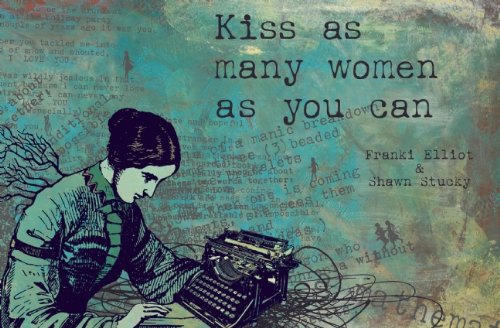It’s spring break, and in addition to other things, I’m reading poetry. I don’t really know how to talk about poetry properly, which is to say with a learned vocabulary, so I’m just going to tell you how the following collections made me feel.
Bendorf’s first book will make you hungry for his next. The Spectral Wilderness is about becoming and emerging, and about wildness and ghosts. I folded over the corners of the pages I liked best, and now it sits crooked on the table, all swelled up on one edge, like a board taking on water.
I love this book.
Get it, everyone. (Also available from The Kent State University Press)
I bought this book because Wave Books was having an amazing Holiday sale. It is a numbered and signed edition, and I’m kind of a nut for those when I can afford them. (Note: While I include Amazon links in my posts in the hopes of making a few books with which to buy more books, I prefer to buy books closer to the source whenever possible.)
Here’s where I admit how uncool I am: It was a little tough to get into these poems at first.
I like rich imagery, and am drawn in by visions and reflection. But Myles is telling stories here, and after a few pages, I began to better hear her voice. There’s bravado and performed bravado and love and sex and 9/11 and an amazing essay-like-piece at the end in which barf features heavily. Myles’ short lines and long stacks of them conspire to take you, as if by stepping stone path, deep into the mind of the poet’s poet. She’s called a rockstar for a reason. She has this way of combining small, “trivial” details (like the time — “Twenty three before 6.”) and big things (like love, like sex, like some larger thing that looks like living).
After reading Sorry, Tree I felt like I’d watched a documentary and gone to the MoMA. She’d probably hate hearing that, so don’t anyone tell her, but for me it was amazing.
Verdict: recommended
I have been a fan of Curbside Splendor books ever since I became a fan of Amber Sparks’ books. Specifically, some number of AWP’s ago, I bought her collection, May We Shed These Human Bodies, and then when it came out, her collaboration with Robert Kloss, The Desert Places.
What I love about CS books is that they are each specially designed objects. No detail is forgotten. Kloss’ illustrations are printed like works of art, Sparks’ collection of stories is as good inside as out, etc.
Kiss as many women as you can is another CS collaboration. This time between poet Franki Elliot and artist Shawn Stuckey. [I’m including the “thumbnail” for this book (which is really more like a ham-fist than a thumbnail, since my blog platform doesn’t allow re-sizing), because it includes an example of one of Shawn Stucky’s gorgeous collages.]
Elliot writes poetry/stories live, on an old typewriter, and photographs her favorites. This collection features several of them on the front sides of mailable postcards (with perforated edges, because CS gets it). The poem-images alternate with Stuckey’s collages, some of which feature Elliot’s typewritten lines as textural elements.
Most of the poems feature the love or lovelorn, and Elliot is adept at concision. If I were to call these poems charming that might not adequately represent the weight they have on the page. Stuckey’s surreal collages are a blend of someecard-style woodcuts with Portlandia-style birds on them, but these are not images from the Anthropologie stationery table: heads are cut off, birds fly upside-down—there are mysteries and chaos, simmering just behind the richly textured and vibrant backgrounds.
There’s a quality of performance between these pages. Even more so if you actually detach the postcards and mail them. Which you should do. Unlike me, who will probably horde them like I have the dead bugs.
Score: Buy a copy for your favorite romantic artist. And then buy a copy for yourself and start writing to people with an actual pen instead of a keyboard.
